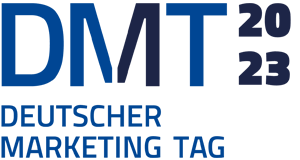Some companies have already adopted Agile Marketing with great results, increasing their Marketing ROI by 15 to 25%. A few years from now – driven even more by the external factors above - it will seem almost ridiculous that for so long, we prepared only annual marketing plans – based on static, annual Marketing Mix Modelling – and went through with them. It's high time to prepare for permanent adaption.
As serial CMO and now McKinsey Partner Michael Betz puts it:
"COVID-19 has changed many things, but I do not believe it changes how a CMO should justify marketing investments. It's about driving short- and long-term revenue and margin. What has changed is the speed at which you need to – and the precision at which you can – show the relationship between marketing actions and revenue delivery."

Agile Marketing Budgeting requires some investment of time and money but can yield first results after a few weeks (and rolled out within a few months) when going through the following steps:
- Define the portfolio across which you want to optimize marketing ROI (countries, categories, brands) and what is your optimization target (i.e. what do you usually want to maximize, e.g. value sales).
- Compile frequent data on sales, detailed marketing spending, online marketing metrics (the standard reports provided by Facebook, Google, etc. are sufficient), brand KPIs (like consideration and ad awareness), plus data on a few additional factors influencing your business (in FMCG typically competitive spendings, pricing, promo shares, distribution and sampling) – ideally weekly for the past 2-3 years.
- Build state-of-the-art statistical models (or have them built by a third party) that quantify the relation between marketing activities, brand metrics, and sales, and combine them with an optimization logic that moves you from insights to decision support.
- Build or contract a solution allowing you to optimize and run what-if scenarios on your desktop at any time (and give you access to all the data through dashboards).
- Ensure at least quarterly uploads of the relevant data to recalibrate models with the latest market information.
- Train your organization to use the new possibilities and re-assess your marketing plan regularly (while performance marketing of course is still being optimized more frequently by the respective granular tools).
In these uncertain times, CMOs start discussing what a "new normal" will look like. Higher frequency and higher velocity of change will be a defining element of the new marketing normal. The disruptive arrival of digital marketing and its mechanics has been a foretaste of that. This requires a commitment to agile marketing and, in particular agile resource allocation – not to be mistaken with short-termism!
So, what are the no-regret moves for CMOs and Marketing Executives across industries, given the challenges and tough choices marketers face?
- When asked to cut the marketing budget to secure cash flow, adopt an investor´s mindset. A vital prerequisite to being able to do that, however, is to have a system that measures the ROI of each marketing activity.
- Apply the principles of performance marketing to traditional ATL marketing. For most companies, it is perfectly normal to optimize online spending daily. But for classic ATL media like TV or Print, most companies still rely on annual planning and measure its underlying effectiveness once a year at best.
- At the same time, don't ignore the long-term brand impact. What's right for your brand depends on the leverage your marketing spendings have on longer-term sales. Among the companies we serve, we found that e.g. TV advertising has, on average, an additional long-term lever of +70% on top of the short-term sales effect – but it ranges from 10% to more than 200%. In the past, crises have often been a good moment to build broad reach cost-efficiently if your underlying marketing is effective.
- Stay in control of your toolkit and demand dynamic updates. In the new volatile market environment, marketers should have all information and analyses at hand at any time to adjust their plans or even re-draw them from scratch when needed. In a disruptive situation, last year's MMM may not be worth the paper it's printed on. Marketers need their own analytical tools to simulate new marketing plans based on the latest data in near real-time.
- Optimize spending across your portfolio instead of focusing on media mix only. Many marketers focus on media channel mix when the situation changes, and increased budget efficiency is required. However, both scientific research and our analyses show that re-allocation between brands, product categories and countries is several times more effective in increasing Marketing ROI than pure cross-media re-allocation. Most classical MMMs miss out on this huge opportunity.
Especially in times of crisis, organizations that internalize agile marketing are not only able to adapt to customers and the market environment more quickly. They can also – where the budget pressure becomes too great – you can also use the dissecting knife instead of the axe, the future of your brands.
Companies that consistently drive the agility of their processes and manage to take a step back in order to optimize the portfolio and not the individual measures will emerge as winners from the current crisis.

Claudio Righetti hat nach seiner Zeit bei McKinsey über 20 Jahre Erfahrung als Senior Manager in der Konsumgüterindustrie gesammelt. Dabei unterstützte er die Transformation zu einem führenden globalen Unternehmen in den Bereichen Marketing, strategische und operative Planung sowie den Aufbau neuer Geschäftsfelder. Aus der Praxis kennt er sowohl die Notwendigkeit des strategischen Datenmanagements als auch die Herausforderungen in der Umsetzung von internationalen Portfolioplanungs- und Budgetallokationsprozessen. Claudio Righetti ist CEO der Analyx GmbH.
